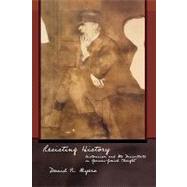Resisting History
, by Myers, David N.- ISBN: 9780691146607 | 0691146608
- Cover: Paperback
- Copyright: 12/21/2009
Nineteenth-century European thought, especially in Germany, was increasingly dominated by a new historicist impulse to situate every event, person, or text in its particular context. At odds with the transcendent claims of philosophy and--more significantly--theology, historicism came to be attacked by its critics for reducing human experience to a series of disconnected moments, each of which was the product of decidedly mundane, rather than sacred, origins. By the late nineteenth century and into the Weimar period, historicism was seen by many as a grinding force that corroded social values and was emblematic of modern society's gravest ills. Resisting History examines the backlash against historicism, focusing on four major Jewish thinkers. David Myers situates these thinkers in proximity to leading Protestant thinkers of the time, but argues that German Jews and Christians shared a complex cultural and discursive world best understood in terms of exchange and adaptation rather than influence. After examining the growing dominance of the new historicist thinking in the nineteenth century, the book analyzes the critical responses of Hermann Cohen, Franz Rosenzweig, Leo Strauss, and Isaac Breuer. For this fascinating and diverse quartet of thinkers, historicism posed a stark challenge to the ongoing vitality of Judaism in the modern world. And yet, as they set out to dilute or eliminate its destructive tendencies, these thinkers often made recourse to the very tools and methods of historicism. In doing so, they demonstrated the utter inescapability of historicism in modern culture, whether approached from a Christian or Jewish perspective.







